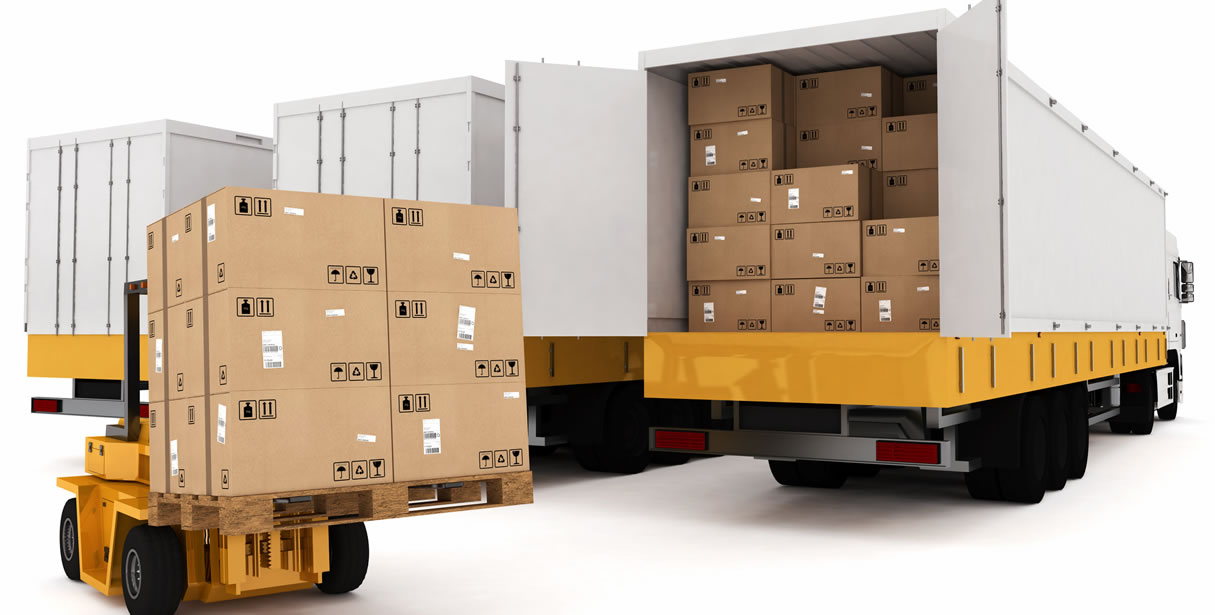General
General Wholesale vs Liquidation Wholesale: Which One Is Better For Your Business?

Selling products wholesale is something that most people have been doing for a long time. Wholesale is now divided into two different types. We now have General wholesale and liquidation wholesale. These concepts are quite simple to understand but have a lot of depth to them. General wholesale is mostly about the unique goals and markets that you target.
For example, General wholesale is mostly done with products such as furniture, clothes, appliances, Hardware, home supplies, etc. These are products that most people buy in their day-to-day lives. On the other hand, liquidation wholesale is a lot more specific.
People buy liquidation wholesale pallets, if they want second-hand, overstock, customer returns, or closeout products. Sellers don’t usually buy these products directly from the producers. Therefore, these products are a little less costly. If you wish to know which type of wholesale is better for your business, keep reading the article:
- The target audience of general wholesale vs liquidation wholesale:
- General wholesale: The target audience of General wholesale is usually the general public. This means that products we see regularly in markets are from general wholesalers. For example, when we go to the supermarket to buy groceries, they are mostly from general wholesalers.
This is mainly because the grocery stores buy these works directly from the producers wholesale to sell them to the general public in the sale. Other than general supplies, many people also sell items that people buy occasionally if not regularly. For example, jewellery, clothes, home appliances, fitness gear, and many other items. Due to such a wide catalogue, the market of general wholesalers is very wide.
- Liquidation wholesalers: The target market of liquidation wholesalers is usually people who wish to buy high-quality products at a cheap price. Although liquidation products are cheaper, liquidation pallets can give you a lot of different types of products. Most liquidation stores offer second-hand products.
Since these products or not the original products which have come directly from the producer, the price is lesser. Since second-hand products have few damages to them, liquidation wholesalers cannot sell them at the original price. This appears as a great sale to most people who do not wish to spend a lot of money on the brand-new product but also want the same for purchase.
In addition, liquidation wholesalers also upload their products on online retail websites. Websites like eBay, Amazon and Flipkart in India sell a few liquidation products. In this way, liquidation wholesalers can expand the market and reach more people.
- Advantages:
- General wholesale: The first advantage of General wholesale is that most of your products will be of great quality. This is mainly because you buy them directly from the main producer. Therefore, all of your products will be new, fresh, relevant and ready for purchasing. In addition, General wholesale products are hardly ever damaged.
In this way, you will not have to face any problems with damage to the products. Since these products are something that most people need to buy, having a higher price on them will not stop people from buying them. Therefore, no matter the MRP, people will buy your products leading to more profit.
- Liquidation wholesalers: liquidation wholesalers have some amazing advantages. One of these is that you can negotiate the price of your products by yourself. Since you are going to be selling the products regardless of the MRP, you can set a price which you feel is the best.
You can always make some great profit from liquidation wholesale lots. Since your products are cheaper and of high quality, most people will buy your products in the first instance. This means that you will mostly acquire all of your customers and not lose any. Liquidation wholesale is also great as you can promote your products in various ways and grow your brand.
- Disadvantages:
- General wholesale: General wholesale has a few disadvantages. Most of these are based on the fact that you will have to charge a greater price than what the original producer gave to you for your product.
This is because, to keep some profit, you will have to increase the price. This may cause a problem for a few people as general supplies should not be as expensive. Even though your market will remain active, your customers may not be the happiest.
- Liquidation wholesale: liquidation wholesale doesn’t have many disadvantages regarding customer satisfaction. However, many people may find it difficult to carry out a liquidation business due to the damages to a few products. Sometimes, there are also many problems with the packaging of the products. This can lead to a lot of obstacles.
In conclusion, both General wholesale and liquidation wholesale have their pros and cons. Depending upon your needs and expectations, you should figure out which one fits you the best. If you are willing to put an effort and go the extra mile to find high-quality liquidated products, then liquidation wholesalers are for you.
However, if you wish to simply sell ready-made high-quality products, then you should go for general wholesale. We hope that this article could help you understand General wholesale and liquidation wholesale better and could help you choose the best one for your business.
General
Deep Blue Project: Mobereola Seeks Air Force Support

By Adedapo Adesanya
The Director General of the Nigerian Maritime Administration and Safety Agency (NIMASA), Mr Dayo Mobereola, is seeking enhanced cooperation between the agency and the Nigerian Air Force (NAF) with the aim of strengthening tactical air support within the Deep Blue project.
During a courtesy visit last week, Mr Mobereola told the Chief of Air Staff, Air Marshall S. K. Aneke at the NAF Headquarters in Abuja, that the Air Force was a strategic partner in enhancing maritime security in Nigeria and sustaining the momentum of the Deep Blue Project’s success.
According to the DG, “We are here to seek the Air Force’s support, given the importance of tactical air surveillance to the Deep Blue Project. Nigeria is the only African country with a record of zero piracy within the last 4 years. The Deep Blue Project platforms have been used to achieve zero piracy and sea robberies in the Gulf of Guinea, and we need your collaboration to sustain this momentum”.
He further emphasised that international trade depends on security, which is why vessels prefer to go to or transit through countries where they are secured. “With the traffic we have now, we need to show more security might through collaboration to strengthen our trade viability because of the risks attached to our route. We need these collaborations to sustain what we have achieved so far with the Deep Blue Project”.
The NIMASA DG expressed hope that the collaboration with the Nigeria Air Force will reduce response time.
On his part, the Chief of Air Staff, Air Marshall S.K. Aneke, noted that the Air Force desires to be “a very supportive and collaborative partner with NIMASA and is ready to match the Agency step by step and side by side to achieve the desired results.”
He noted that “collaboration between NIMASA and the Nigerian Air Force under the Deep Blue Project can be strengthened through a joint strategic framework, integrated command structures, and a standing steering committee to ensure shared objectives and accountability.
“Establishing a joint maritime domain awareness fusion cell will enable real-time intelligence sharing, synchronised surveillance, and faster response to maritime threats and ensure sustained operational effectiveness across Nigeria’s territorial waters and exclusive economic zone,” he said, according to a statement.
The Air Force Chief added that the Air Force can also support NIMASA outside the Deep Blue Project operations by providing its own ISR platforms, tactical air support, and rapid airborne deployment for interdictions and search and rescue missions.
While thanking the NIMASA DG for the basic trainings the Agency has provided the aircraft pilots under the Deep Blue Project, Air Marshall Aneke also highlighted areas of operational challenges needing NIMASA’s attention to include bridging the communication gap between NAF operators and NIMASA, higher level and in-depth maintenance trainings, readily available fueling of aircrafts to avoid delays on missions, and provision of flying kits among others.
He therefore pledged the Air Force’s collaboration and assured that the request by NIMASA has been noted and that things will begin to move at thrice its speed going forward.
General
Nigeria’s Democracy Suffocating Under Tinubu—Atiku

By Modupe Gbadeyanka
Former Vice President, Mr Atiku Abubakar, has lambasted the administration of President Bola Tinubu for the turnout at the FCT Area Council elections held last Saturday.
In a statement signed by his Media Office, the Adamawa-born politician claimed that the health of Nigeria’s democracy under the current administration was under threat.
According to him, “When citizens lose faith that their votes matter, democracy begins to die. What we are witnessing is not mere voter apathy. It is a direct consequence of an administration that governs with a chokehold on pluralism. Democracy in Nigeria is being suffocated slowly, steadily, and dangerously.”
He warned that the steady erosion of participatory governance, if left unchecked, could inflict irreversible damage on the democratic fabric painstakingly built over decades.
“A democracy without vibrant opposition, without free political competition, and without public confidence is democracy in name only. If this chokehold is not released, history will record this era as the period when our hard-won freedoms were traded for fear and conformity,” he stressed.
Mr Atiku said the turnout for the poll was below 20 per cent, with the Abuja Municipal Area Council (AMAC) recording 7.8 per cent.
He noted that such civic participation in the nation’s capital, the symbolic heartbeat of the federation, is not accidental, as it is the predictable outcome of a political environment poisoned by intolerance, intimidation, and the systematic weakening of opposition voices.
The presidential candidate of the People’s Democratic Party (PDP) in the 2023 general elections stated that the ruling All Progressives Congress (APC) under Mr Tinubu has pursued a deliberate policy of shrinking democratic space, harassing dissenters, coercing defectors, and fostering a climate where alternative political viewpoints are treated as threats rather than contributions to national development.
He called on opposition parties and democratic forces across the country to urgently close ranks and forge a united front, declaring, “This is no longer about party lines; it is about preserving the Republic. The time to stand together to rescue and rebuild Nigeria is now.”
General
Nigeria Eyes Full Entry into Council of Palm Oil Producing Countries

By Adedapo Adesanya
Nigeria is set to validate a technical committee report geared towards transitioning the country from observer status to full membership of the Council of Palm Oil Producing Countries (CPOPC) in April.
Mr Abubakar Kyari, Minister of Agriculture and Food Security, said this when the council’s mission visited him over the weekend in Abuja, noting that the ministry had constituted a technical committee to consider how the country would seamlessly transit from observer country to membership in CPOPC based on its strategic importance in palm oil production.
“We are conscious of the fact that the palm oil value chain is very strategic for us and identified it as an export crop that can drive foreign exchange for the country and ensure good health in terms of consumption.
“We are conscious of the fact that we need the support of CPOPC countries to provide the country with a new variety of seeds that are climate-smart and resistant so that they can be produced by farmers in the country,” he said.
Mr Alphonsus Inyang, President, National Palm Produce Association of Nigeria (NPPAN), said being a member of CPOPC Nigeria would target over 10 million tonnes of oil palm between 2026 and 2050.
“We are also targeting 2.5 million hectares from among Nigeria households who are out to produce one hectare each, geared towards a N20 trillion annual economy within this period from among Nigeria households.
“We are working side by side with the big players who will be developing plantations,” he said.
The Secretary-General of CPOPC, Ms Izzana Salleh, said the council’s mission to Nigeria was to see how the country could transit from observer status to full membership, among others
She said that the status of the country as an observer nation since 2024 would expire by November.
Ms Salleh assured the country of the council’s readiness to support its vision to strengthen domestic production, enhance food security and build a competitive and sustainable palm oil supply chain.
The official emphasised that being a member of the council would strategically position Nigeria for a greater future regarding oil palm production.
According to her, the visit is to strengthen the council’s engagement with Nigeria, including potential membership in CPOPC.
She said: “The council’s mission to Nigeria aims to advance both Nigeria’s national ambitions and Africa’s collective voice in global agricultural discussions.
“CPOPC was established to promote cooperation among producing nations, empower smallholders, advance sustainability, and ensure fair, science-based global dialogue on vegetable oils.
She emphasised that being a member of the council would strategically position the country for greater future prospects regarding oil palm production and the value chain, as well as export.
“We are ready to support Nigeria’s vision to strengthen domestic production, enhance food security, and build a competitive and sustainable palm oil supply chain,” she said.
-

 Feature/OPED6 years ago
Feature/OPED6 years agoDavos was Different this year
-
Travel/Tourism10 years ago
Lagos Seals Western Lodge Hotel In Ikorodu
-

 Showbiz3 years ago
Showbiz3 years agoEstranged Lover Releases Videos of Empress Njamah Bathing
-

 Banking8 years ago
Banking8 years agoSort Codes of GTBank Branches in Nigeria
-

 Economy3 years ago
Economy3 years agoSubsidy Removal: CNG at N130 Per Litre Cheaper Than Petrol—IPMAN
-

 Banking3 years ago
Banking3 years agoSort Codes of UBA Branches in Nigeria
-

 Banking3 years ago
Banking3 years agoFirst Bank Announces Planned Downtime
-

 Sports3 years ago
Sports3 years agoHighest Paid Nigerian Footballer – How Much Do Nigerian Footballers Earn



















